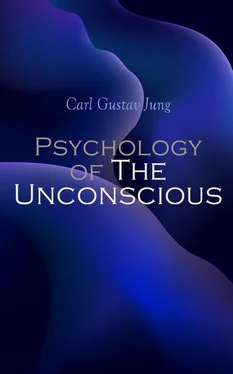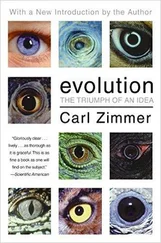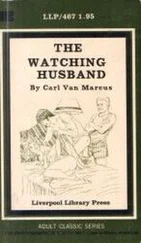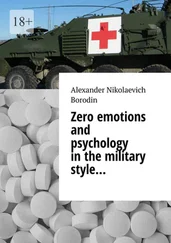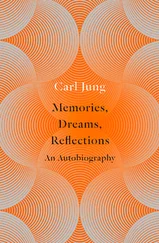Miss Miller concludes the list of her fancies with the following remarks:
“The dream seemed to me to come from a mixture of the representation of ‘Paradise Lost,’ ‘Job,’ and ‘Creation,’ with ideas such as ‘thought which spontaneously produces its object’: ‘the gift of love,’ ‘chaos, and cosmos.’”
In the same way as colored splinters of glass are combined in a kaleidoscope, in her mind fragments of philosophy, æsthetics and religion would seem to be combined—
“under the stimulating influence of the journey, and the countries hurriedly seen, combined with the great silence and the indescribable charm of the sea. ‘Ce ne fut que cela et rien de plus.’ ‘Only this, and nothing more!’”
With these words, Miss Miller shows us out, politely and energetically. Her parting words in her negation, confirmed over again in English, leave behind a curiosity; viz., what position is to be negated by these words? “Ce ne fut que cela et rien de plus”—that is to say, really, only “le charme impalpable de la mer”—and the young man who sang melodiously during the night watch is long since forgotten, and no one is to know, least of all the dreamer, that he was a morning star, who came before the creation of a new day. [79]One should take care lest he satisfy himself and the reader with a sentence such as “ce ne fut que cela.” Otherwise, it might immediately happen that one would become disturbed again. This occurs to Miss Miller too, since she allowed an English quotation to follow,—“Only this, and nothing more,” without giving the source, it is true. The quotation comes from an unusually effective poem, “The Raven” by Poe. The line referred to occurs in the following:
“While I nodded, nearly napping, suddenly there came a tapping
As of some one gently rapping, rapping at my chamber door—
‘’Tis some visitor.’ I muttered, ‘tapping at my chamber door’—
Only this, and nothing more.”
The spectral raven knocks nightly at his door and reminds the poet of his irrevocably lost “Lenore.” The raven’s name is “Nevermore,” and as a refrain to every verse he croaks his horrible “Nevermore.” Old memories come back tormentingly, and the spectre repeats inexorably “Nevermore.” The poet seeks in vain to frighten away the dismal guest; he calls to the raven:
“‘Be that word our sign of parting, bird or fiend,’ I shrieked, upstarting—
‘Get thee back into the tempest and the night’s Plutonian shore!
Leave no black plume as a token of that lie thy soul hath spoken!
Leave my loneliness unbroken, quit the bust above my door!
Take thy beak from out my heart, and take thy form from off my door!’
Quoth the raven, ‘Nevermore.’”
That quotation, which, apparently, skips lightly over the situation, “Only this, and nothing more,” comes from a text which depicts in an affecting manner the despair over the lost Lenore. That quotation also misleads our poet in the most striking manner. Therefore, she undervalues the erotic impression and the wide-reaching effect of the commotion caused by it. It is this undervaluation, which Freud has formulated more precisely as “repression,” which is the reason why the erotic problem does not attain directly conscious treatment, and from this there arise “these psychologic riddles.” The erotic impression works in the unconscious, and, in its stead, pushes symbols forth into consciousness. Thus, one plays hide-and-seek with one’s self. First, it is “the morning stars which sing together”; then “Paradise Lost”; then the erotic yearning clothes itself in an ecclesiastical dress and utters dark words about “World Creation” and finally rises into a religious hymn to find there, at last, a way out into freedom, a way against which the censor of the moral personality can oppose nothing more. The hymn contains in its own peculiar character the marks of its origin. It thus has fulfilled itself—the “Law of the Return of the Complex.” The night singer, in this circuitous manner of the old transference to the Father-Priest, has become the “Eternal,” the “Creator,” the God of Tone, of Light, of Love .
The indirect course of the libido seems to be a way of sorrow; at least “Paradise Lost” and the parallel reference to Job lead one to that conclusion. If we take, in addition to this, the introductory intimation of the identification with Christian, which we see concludes with Cyrano, then we are furnished with material which pictures the indirect course of the libido as truly a way of sorrow. It is the same as when mankind, after the sinful fall, had the burden of the earthly life to bear, or like the tortures of Job, who suffered under the power of Satan and of God, and who himself, without suspecting it, became a plaything of the superhuman forces which we no longer consider as metaphysical, but as metapsychological. Faust also offers us the same exhibition of God’s wager.
Mephistopheles :
What will you bet? There’s still a chance to gain him
If unto me full leave you give
Gently upon my road to train him!
Satan :
But put forth thine hand now, and touch all that he hath, and he will curse thee to thy face.— Job i: 11.
While in Job the two great tendencies are characterized simply as good and bad, the problem in Faust is a pronouncedly erotic one; viz., the battle between sublimation and eros, in which the Devil is strikingly characterized through the fitting rôle of the erotic tempter. The erotic is lacking in Job; at the same time Job is not conscious of the conflict within his own soul; he even continuously disputes the arguments of his friends who wish to convince him of evil in his own heart. To this extent, one might say that Faust is considerably more honorable since he openly confesses to the torments of his soul.
Miss Miller acts like Job; she says nothing, and lets the evil and the good come from the other world, from the metapsychologic. Therefore, the identification with Job is also significant in this respect. A wider, and, indeed, a very important analogy remains to be mentioned. The creative power, which love really is, rightly considered from the natural standpoint, remains as the real attribute of the Divinity, sublimated from the erotic impression; therefore, in the poem God is praised throughout as Creator.
Job offers the same illustration. Satan is the destroyer of Job’s fruitfulness. God is the fruitful one himself, therefore, at the end of the book, he gives forth, as an expression of his own creative power, this hymn, filled with lofty poetic beauty. In this hymn, strangely enough, two unsympathetic representatives of the animal kingdom, behemoth and the leviathan, both expressive of the crudest force conceivable in nature, are given chief consideration; the behemoth being really the phallic attribute of the God of Creation.
“Behold now behemoth, which I made as well as thee;
He eateth grass as an ox.
Lo, now; his strength is in his loins,
And his force is in the muscles of his belly.
He moveth his tail like a cedar:
The sinews of his thighs are knit together.
His bones are as tubes of brass;
His limbs are like bars of iron.
He is the chief of the ways of God:
He only that made him giveth him his sword....
Behold, if a river overflow, he trembleth not;
He is confident though a Jordan swell even to his mouth.
Shall any take him when he is on the watch.
Or pierce through his nose with a snare?
Canst thou draw leviathan with a fish-hook?
Or press down his tongue with a cord?...
Lay thy hand upon him;
Remember the battle and do no more.
None is so fierce that dare stir him up:
Who then is he that can stand before me?
Читать дальше
